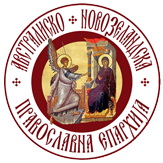Hallowed be thy name
Following the joyful, festive, and loving salutation, “Our Father, who art in heaven,” we say, “hallowed be thy name.” What are we asking, what need are expressing as we pronounce these words? What does it mean to hallow the name of God?
I am convinced, alas, that most of the faithful who pronounce these words do not really contemplate their meaning. For atheists, this is just one more excuse to shrug their shoulders to the confusing and mystical combination of word: “hallowed be thy name.”
From earliest times man called scared or holy that which he perceived as the supreme value, demanding reverence, acknowledgement, awe, and thanksgiving; which at the same time attracted man to itself, inspiring familiarity and intimacy. We speak of the sacred feeling of homeland, of the sacred love towards parents, of sacred awe in the face of beauty, perfection, wonder. Thus, the scared is that which is higher, purer, demanding all that is best: the best sentiments, the best efforts, the best hopes in man. The peculiarity of the sacred is precisely in the fact that it demands from us an inner awareness of self-evident and free desires; yet not simply an awareness, but action and life consistent with this awareness. The awareness that two times two makes four, or that water boils at a specific temperature leaves us neither better nor worse; such as awareness belongs to the righteous and the unrighteous, to the ignorant and the intelligent, the genius and the simpleton. But if we experience a sacred awareness in terms of beauty, or moral perfection, or a special intuition about the world and life, then this awareness immediately makes some demand on us, effects some change in us, invites us somewhere, captivates us, seduces us.
How simply and beautifully Pushkin described this in his famous poem, “The memory of a glorious moment….” The poet forgets the “vision,” the instruction of “disturbing storms,” the dispersion of “previous hopes,” and writes,
…my soul was stirred
And once again you came,
A passing vision,
A glimmer of beauty pure.
In fullness beats my heart,
Feeling once again
The resurrection of divinity,
And inspiration, and life,
And tears, and love.
Here is the description of the sacred as beauty. This experience changes life in it’s entirely, fills it, in the words of Pushkin, with meaning, and inspiration, and joy, and the divine.
Religious experiences is the experience of the holy in its purest form. Whoever has some measure of this experience knows that it penetrates one’s whole life, demanding a change and an inner transformation. But he knows as well that this desire is also blocked by a certain inertia, a weakness, the pettiness of our existence and, above all, by that almost instinctive fear of man in the face of sacred, that is, the highest, the pure, and divine. Our hearts and souls feel literally wounded by this encounter with the holy, and we are inspired to align our whole being with this desire. But then we are reminded by the Apostle Paul that inside ourselves there is a law which fights against this very desire (Rom 7:23).
“Hallowed be thy name” this is the cry of the one who has seen and recognized God, and knows that only in this vision and encounter can he find the fullness of life, full inspiration, and full happiness.
“Hallowed be thy name” may everything in the world, beginning with my own life, my deeds, my words be a reflection of this sacred and divine name, which has been revealed and given to us. May life once more become an ascension towards the light, an exaltation, praise, the power of good. May everything be filled with divine wisdom and divine love.
“Hallowed be thy name” this is also a petition for help in the difficult effort in this ascension and transformation, for we are surrounded and held captive to darkness, evil, pettiness, superficially, turmoil. Each ascent is vanquished by a fall, each effort followed by an attack of weakness and despondency that in the words of the writer Fyodor Tiutchev: “life is like a wounded bird which tries to ascend but can’t…”
The experience of the holy is a mystical “encounter with worlds beyond,” a “fleeting vision of pure beauty,” which makes life not easier but, in fact, harder, and one begins to envy people who are simply immersed in the fuss and bother of life with no inner struggle. However, it is precisely in this struggle that man fulfils his high vocation, descents, can he consider himself a person.
All of this is implied in that first petition of the Lord’s Prayer. Such a short yet simultaneously joyful and difficult petition: “hallowed be thy name.”
All of what is best in me is capable not only of pronouncing these words, but also of profoundly living by them, everything in me seeks that new life, a life which would shine and burn with a holy flame, consuming all impurity, all unworthy visions that drag me down. My Lord, what an arduous petition, what a burden Christ laid upon us I giving it us, in showing us that this is the only worthy prayer to God, and as such, must be our very first prayer! How rarely we pronounce these words, acknowledging all this, and yet how good it is that we repeat them again and again. For it is only while these words, “Hallowed be thy name,” remain heard in the world, while they are not forgotten, that man will not entirely depersonalized, that he will not totally betray the vocation for which he was created by God.
“Hallowed be thy name.”
Father Alexander Schmemann
to be continued















